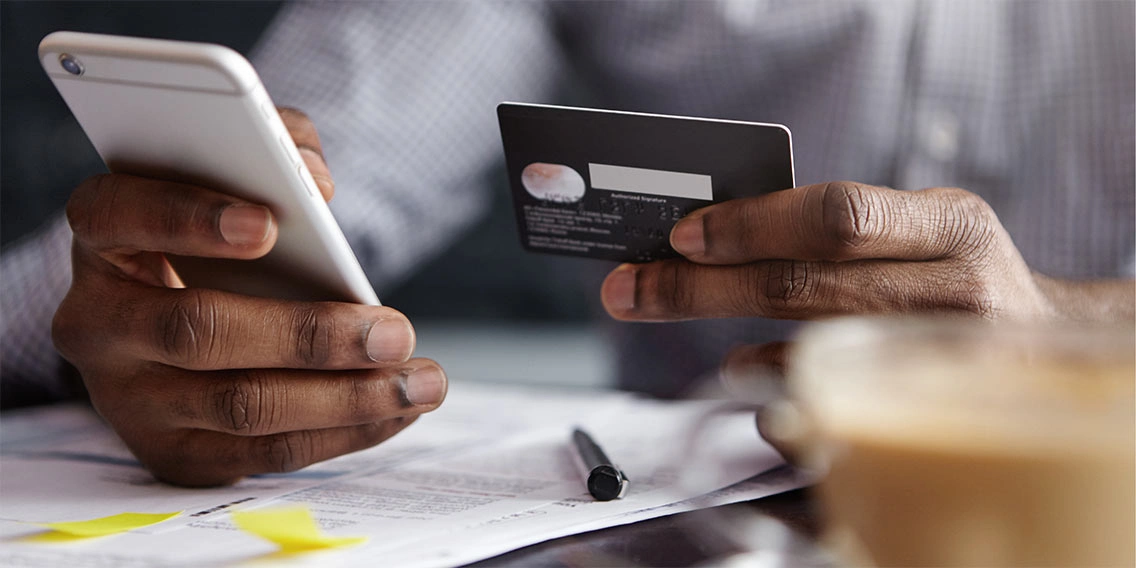CREDIT CARDS
5 Questions to Ask Yourself Before Choosing a Credit Card
EXPECTED READ TIME: 6 MINUTES
There are lots of great credit cards out there, but that doesn't mean you need to tear into every promotional envelope that comes in the mail.
After all, people use credit cards in different ways. That's why choosing the right card for yourself comes down to understanding your personal financial needs.
1. How Will You Use This Credit Card?
Basic but important. Depending on how you plan to use your next card, certain credit cards may meet your needs better than others.
For instance, if you're looking to get out from under other credit card debt, you'll want a card with balance transfer offers.
Looking to leverage the power of credit card rewards points instead? Then you'll want to compare reward cards to see which one will give you the best returns. But if you're only after a card to cover emergency spending, you'll want to look for a credit card with a low annual percentage rate (APR).
2. What Are Your Spending Habits?
Be honest here: how do you usually use your credit cards? Start by looking at past credit card statements to see what your typical spending habits are:
Do you tend to run balances? A card with a low APR is a must to minimize the interest you're paying. Tend to pay your card off every month? Then you'll get great value out of a rewards card. Need to make large purchases? Look for a card with a high enough credit limit to handle them.
Trips to Venice, free dinners, tickets to the big game — some credit cards offer amazing benefits. But are those benefits going to help you?
3. What's Your Credit Score?
Your credit score is a key component to getting approved — or getting the best interest rates — for a credit card. Inquiries on your credit score by credit companies can decrease your score slightly, so it's best to know your credit score and the kind of score you're likely to need. Then apply to cards strategically instead of applying for several cards hoping to get one. Make sure you wait at least three to six months between applications.
If you have bad credit or no credit, you may be better off getting someone to cosign for a card (like a parent or other family member) or applying for a secured card (which requires a down payment up front). Though these aren't likely to be the best deals on cards, they may be the only options available in certain cases.
4. What Does the Credit Card Cost?
Calculating the cost of a credit card isn't always as straightforward as you might think. Depending on the type of card, there may be different fees you'll have to pay to use it.
Interest Rates
All credit cards have an APR, or the interest rate you'll pay on your balance. This APR may vary month to month depending on the prime rate (or a similar financial indicator). The rate may be higher for certain types of transactions (for instance, balance transfers often have higher interest rates). This rate can also change to a "penalty rate" if you're late on a payment.
Calculating the cost of a credit card isn’t always as straightforward as you might think.
Fees
Some cards — typically rewards cards that have a lot of perks — will have an annual fee that you pay once a year no matter how you use the card. Often there are fees for international transactions, balance transfers, cash advances, late payments, and plenty of other things, too.
Check the Card's Terms Before You Commit
Before you sign on the dotted line, go through the fine print and make sure to read the Schumer box detailing the card's terms. Though you should expect all cards to have fees, don't be tempted by great rewards if the terms of the card aren't reasonable.
Apply to cards strategically instead of applying for several cards all at once.
5. What Are the Credit Card's Benefits?
Trips to Venice, free dinners, tickets to the big game — some credit cards offer amazing benefits. But are those benefits going to help you?
Reward Points
Reward cards are exciting. They promise lots of great perks, but they also come with more fees. If you do your everyday shopping with a credit card and consistently pay it off, then you'll probably earn those reward points and that reward card may pay for itself. But if you only use your credit card for big or unexpected expenses, you'll pay a lot in extra fees for the same card — without earning the points to make it worthwhile.
Overlooked Credit Card Benefits
Credit cards can offer other benefits beyond reward points, too. A lower APR or smaller number of fees can make all the difference when you use your card to cover that over-priced but necessary car repair, or when you go to transfer a balance from a high interest credit card you just can't pay off. These benefits aren't as flashy as reward points, but they're still important factors to consider when choosing a new credit card.
The Takeaway
Choosing a credit card is personal in many ways. It's a big decision that should be based on your unique financial needs rather than great advertising. So take the time to reflect on your financial situation, consider your options, and find the credit card that's right for you.
Explore Credit Cards Options Through PenFed
Discover the diverse offering of products, services, and support available to our members.




